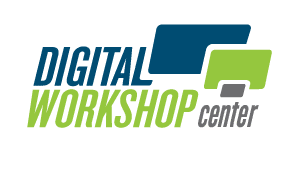Starting A Freelance Business | PGWS Recap
Starting a freelance business offers unparalleled opportunities for individuals to take control of their careers, pursue passions, and achieve financial independence. However, success as a freelancer requires more than just delivering exceptional work; it demands effective and organized management of the business.
In May 2024, we had two of our very own instructors, Jenny Fischer and Dana Volney present their best tips and tricks on starting a freelance business. Jenny owns Fischer Creative where she does design and web building work for a plethora of clients. Dana has owned Volney Ventures, LLC for the last 14 years now—offering a full array of marketing, media placement, and media relationship services. Both Jenny and Dana have years of experience in building and growing their own successful freelancing careers and were so excited about having the chance to share their expertise so that everyone has the chance to see themselves be successful in freelancing.
Below is a quick recap of the first episode in our Professional Growth Webinar Series: Starting a Freelance Business!
Want to play back the webinar? Access the full episode →
Setting Up Your Business
Knowing what your niche is and what work you’ll focus on as a freelancer is the first part of the first step. The other part of the initial stages is finding a solid professional team to support you. To Jenny, while not mandatory, finding a lawyer and an accountant are great first steps so that you can make sure initial paperwork (like LLC or initial client contracts) are reviewed by experts. In filing paperwork, make sure you are also clear on what type of business you are wanting to run. Having a lawyer and accountant can help you decipher if you need certain paperwork like a sales tax license or a wholesale license (if you are getting into retail). Thinking about the kind of business you are getting into is important because the legal and licensing part is a really big step in getting started and making sure you stay in business.
A freelancer is essentially someone who works for themselves and is 100% self-employed. While most of the work is solo, there are plenty of opportunities in freelancing that can be collaborations and partnerships with other freelancers. Jenny Fischer highlighted that in her own experience, she tends to partner with a web developer so that she can focus on her own design aspects while knowing she has an expert working behind the scenes with her. This is important to note because most people think that being self-employed means being on your own with all of the work. This doesn’t have to always be the case! When you are building a freelancing career, you are finding your niche and area of expertise while playing to your strengths to get the work you want. Sometimes, that work includes work you aren’t that well versed in and having a group of trusted collaborating freelancers can be great to rely on.
Jenny also pointed out that paying taxes quarterly can be a great habit to get into to keep your business healthy. While it is okay not to, it is always a better idea to stay on top of your taxes to not only keep your accountant and the IRS happy but to keep your business healthy. Staying on top of taxes and business expenses can highlight what the balance sheet looks like.
Besides the legal paperwork and establishing a supportive team, creating a business plan is important because it helps decide who your audience is going to be, who you are going to work with and for, and what skills and tools you need on your side in order to execute the plan as best as possible. Business plans come in all forms, and Jenny makes a point to note that in her digital marketing class, she walks her students through how to create their own plan, as each plan is unique to each business idea. Your business plan also includes setting rates and developing pricing strategies. Finding out what to charge your clients can be tricky, but Jenny suggests that one of the best ways to discover what to charge is to find out what your competitors are charging. This can help you stay competitive but also help you edge yourself out and bring something new to the table for clients.
Building Your Brand
When it comes to building your brand, it is definitely more than just a logo. It is your personality, how you talk about yourself, your clients, and your services. Creating a portfolio is part of this, too! A website that is full of your past work, projects, and client feedback is a great way to showcase your professional experience. Jenny shared with us some of her favorite website portfolios:
Finding Your First Clients
“It can be very daunting to finally have to go outside and bring money in,” said Dana as she led us into the second part of the webinar about finding clients, managing their expectations and providing exceptional service. Getting involved can be hard but networking is crucial to not only find other like minded freelancing professionals but also to put your name out there to potential clients. One suggestion Dana has is going to local chamber events and other community networking opportunities; not only attending the events but joining the groups that run them. She did this when she was starting out in her career so that whenever a new business or organization would join, she was the one to welcome them. Networking, while daunting, is the key to laying a strong foundation for the exposure of your business. Two other suggestions Dana offered in the webinar about finding initial clients was:
- Go where the businesses already are. Maybe there are organizations, shops, and businesses that you already go to in your personal time that have an identified need for your specific series of services. They might even already remember who you are from prior visits and an established partnership could form.
- Meet with local media representatives. Local radio stations, news outlets, and other media outlets are a great way to not only get your business out there to the local community, but media reps often know a lot of professionals in various industries where they just might be able to point you in lucrative directions.
Your elevator pitch is just as important as networking. When someone asks, “what do you do?” and you are open for work, this question can lead to your next paycheck. An elevator pitch is as if the executive director of your favorite company was in an elevator with you and you only had 30 seconds to present yourself in a professional way. It’s essential if you are wanting to make a lasting impression. As noted by Jenny, having a portfolio ready is crucial and Dana emphasizes how when meeting people, having that portfolio at your fingertips can generate a positive lead. One trick of Dana’s is to have a draft email that provides who she is, what she does, and links to her portfolio/contact info so that if she meets a positive lead, she is able to instantly get their email and send them all the information they need.
Providing Exceptional Service
When Dana first started out, her only professional experience was in the corporate world. There was always a meeting to attend but it was never her initiating, scheduling, attending, and following up on those meetings. Providing exceptional service is a learning process and will take some time to master but lucky for you, Dana has some pointers.
Whether good news or bad, being open and honest with your communication and responsive to their needs from the gecko is the most important part about providing any type of service. There should never be any lying, sugar coating, or stretching the truth to clients as trust can hardly be built once lost. Being consistent with communication is also crucial. Establishing monthly or biweekly meetings with clients can help build towards a trusting partnership where clients are always in the know of what is going on, when work will be delivered, etc. Being an open, honest, and responsive communicator will benefit clients and your business so that no miscommunication can slip through the cracks.
Along with consistent communication, providing exceptional service means delivering quality work and meeting deadlines. Setting the expectations on when those deadlines are will show the client you are prioritizing their needs and making sure that work is delivered on time. Delivering quality work means double checking the work so that when it is sent to the client, it is accessible, digestible, and to the standard that your brand and business holds itself to.
Managing Client Expectations
To effectively manage client expectations, setting clear boundaries should be prioritized in the early stages of the client relationship. This ensures that when things aren’t going so well, boundaries can be revisited and clients reminded of the expectations that have been set. To Dana, managing client expectations looks like…
- Setting clear boundaries. Make it clear when you are available to meet whether online or in person and when your working hours are for them to contact you about time sensitive projects. Make sure that it is also clear on what is and what is not going to be provided. Referring back to Jenny’s mention of business plans, outlining every detail of the scope of the work for each client is crucial in setting those clear boundaries and where contracts and legal paperwork can come into play.
- Handling Feedback and Revisions. Feedback and revisions are normal to any process where there is an end product. When receiving feedback from clients, it is important to note them so that you can refer back to what changes were made based on what feedback. Noting and repeating the feedback to clients is also important in making sure that you are clear on what the feedback actually is and so no further revisions will need to be made because of miscommunication.

Starting a freelance business offers immense potential for personal and professional growth. As highlighted by Jenny Fischer and Dana Volney in our recent webinar, success in freelancing extends beyond setting up a solid foundation and delivering quality work to include strategic business management, effective networking, and consistent client communication.
By applying these expert tips, aspiring freelancers can navigate the initial challenges and set the stage for a thriving career. With persistence, dedication, and the right strategies, you too can build a sustainable and rewarding freelance business. For more in-depth advice and practical examples, be sure to watch the full webinar recording we recently made available on our YouTube channel!
We hope this recap has provided valuable insights and motivation to take the next step in your freelance journey. Stay tuned for the next episode in our Professional Growth Webinar Series, where we will continue to explore essential topics to help you achieve your professional goals.
Have an idea for a webinar? Tell us about it → Webinar Series Feedback
